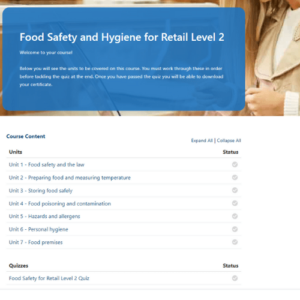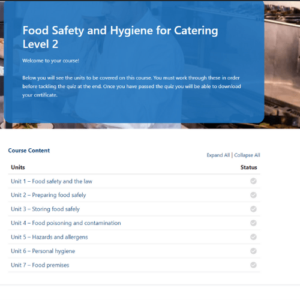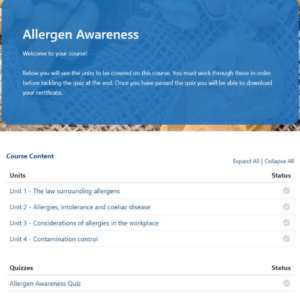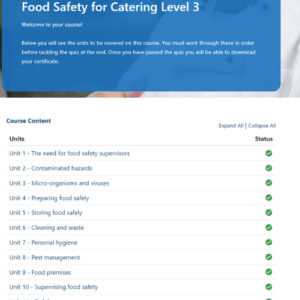In this article
What is a Tea and Coffee Business?
95 million cups of coffee and 100 million cups of tea are consumed in the UK every day. In fact, more than £4 billion is spent in high street coffee shops every year in the UK. We are famously a nation that loves tea and now that the coffee obsession has taken over the country, this could be the perfect time to set up a coffee and tea business.
A fairly untapped sector of this industry is the mobile coffee and tea business. Consumers have less time to sit in a café for hours, enjoying a hot beverage or two. Many consumers now want a quick tea and coffee takeaway service that is conveniently located and still provides high-quality beverages.
A mobile coffee and tea business will sell many of the same products found in cafés and coffee shops. The big difference is that you will be working from a vehicle that is fitted specifically with the type of equipment you will need to provide great tea and coffee. This enables you to travel to various locations to increase the number of people your business is exposed to and the number of potential customers you could receive.
A mobile coffee and tea business also has relatively low start-up costs, particularly when compared to a traditional static coffee and tea shop. You will also have lower running costs and overhead costs, which can increase your potential profit margin.
Running a mobile coffee and tea business does not require you to have any prior qualifications or experience. Although barista training could be an advantage, these skills can be learnt quickly. All you need is a flair for business, the commitment to making your business succeed and a solid business plan.
A mobile coffee and tea business can be run in a variety of ways.
- A tea and coffee truck or van.
- A tea and coffee bicycle with an attached cart.
- A pop-up stall that can be transported to different events.
- A tea and coffee delivery service.
Many coffee and tea businesses also choose to sell additional food and beverage products, such as soft drinks, cakes, cookies, pastries and other snacks. You also need to consider the type of tea and coffee that you plan to sell.
Types of Customers
A love of hot beverages transcends all ages, from teenagers to pensioners. Many tea and coffee businesses will also provide products suitable for children, such as hot chocolate, soft drinks and snacks. This means the types of customers your business is likely to attract could be limitless.
However, it could be that you choose to set up your business in locations that are more likely to attract a certain type of customer. Alternatively, you may focus your coffee and tea business on catering for specific events.
Choosing a potential target market could be beneficial when creating your business plan. It could help you decide the type of stock you need to order and the products you plan to sell. It could also help you to decide on a price point and calculate your potential profits and expenses.
Potential target markets could include, but are not limited to:
- Areas with high foot traffic.
- Roadside, for example lay-bys, car parks and industrial estates.
- Areas with a high number of workers, such as a business district or a town centre.
- Parks, beaches and other recreational locations.
- Shopping areas.
- Organised sporting events or other outdoor events.
- Pop-up events.
- Business and corporation events, such as meetings and conferences.
- Festivals, fairgrounds and other recreational events.
- Markets and food fairs.
- Celebrations such as weddings and christenings.
Choosing your target market can be difficult and many coffee and tea businesses choose not to limit themselves to one target market. However, focusing on different types of customers that may be attracted to similar products or businesses could be beneficial.
When deciding the types of customers you aim to appeal to, there are several factors to consider:
What do you want your brand identity to be?
The style of business you choose could influence the type of customers you attract. Much of your identity will be attached to the visual look of your business and the type of products you sell. For example, you could choose a vintage coffee cart with artisan products or a more simple, modern vehicle that sells regular coffee and tea.
What type of business do you plan to run?
You could choose to supply coffee and tea to business events, whereby you may be required to deliver the products and customers can serve themselves. You could choose a mobile business that moves to different locations. Alternatively, you could opt for a business that caters to pop-up and organised events.
What competition do you have in your local area?
Your competition is an important factor to consider. Look at what coffee and tea businesses already exist, if there are any gaps in the market or niches you could tap into and the type of business that is most likely to succeed.
What is the price point for your products?
Coffees can retail for as much as £5, depending on the type of coffee, the design and the flavour. However, a parent watching their child’s sporting event is much less likely to purchase an expensive coffee compared to people attending an artisan food fair.



Equipment You’ll Need
The type of equipment you will require for your coffee and tea business can vary greatly, depending on the type of business you choose to run. The costs associated with this equipment and your approximate start-up costs can also vary, depending on the specification of the equipment, whether you buy it new or second-hand or whether you choose to rent some of the equipment.
Below is a list of some of the equipment you may require for your coffee and tea business.
A vehicle
The vehicle you require depends on the type of coffee and tea business you want to create. If you opt for a mobile coffee and tea business, your vehicle is likely to be your most expensive purchase.
Your vehicle options include:
- A tea and coffee trailer or van – This would be the most expensive option but would allow you to store more stock and larger coffee- and tea-making facilities. New trailers or vans are likely to cost at least £60,000. You could opt to buy a second-hand trailer for approximately £20,000, although you may have to pay extra to convert the trailer or install the correct equipment.
- A bicycle with an attached cart – This option is much cheaper but is also much smaller in size. You can buy bicycles with carts for as little as £2,000, plus the cost of installing any equipment.
- A delivery vehicle – If you opt to run your business from a pop-up stall, you may be able to use your existing vehicle. However, depending on the size of your equipment, you may need to purchase a delivery van.
Coffee and tea making facilities
For coffee alone, there are multiple types of coffee-making equipment you could choose to purchase. The costs associated with your coffee- and tea-making facilities can vary hugely, depending on the product you choose, the brand and the specification. You could expect to pay anywhere between £500 and £10,000 for a good quality machine.
Your options could include:
- A coffee machine – You could choose one that has multiple settings, such as cappuccino, latte and macchiato.
- An espresso machine – Hot water is forced through ground coffee. This can be served simply as an espresso or combined with hot water, steamed milk and other ingredients to make different types of coffee.
- A filter coffee machine – This could be useful if you need to serve many customers at once, such as at a work conference. You can make large batches of coffee at one time.
- A coffee grinder – This is used for coffee beans.
- A hot water dispenser – This can be used for tea and other hot beverages.
Cups and cutlery
Depending on the type of business, you may only need to buy takeaway cups and wooden stirrers for your customers. If your coffee and tea business is going to have a sit-down area, or you plan to serve at events, you may also need to invest in reusable or porcelain cups and saucers, metal spoons and other cutlery. If you are happy to spend a little extra, you could choose cups and cutlery that match your brand or are branded with your business name.
A refrigerator
As you will be serving milk, a refrigerator is a necessity. Some trailers or vans may come with an inbuilt refrigerator. If not, you could install one yourself or buy a small portable refrigerator.
Accessories and equipment
There are a huge number of accessories you could purchase for your coffee and tea business.
This includes:
- A gazebo, parasols or other shading areas.
- Tables and chairs for seating.
- A cash register and a Point of Sales system.
- Display tables, baskets and bowls for snacks.
- A pricing board.
- Sugar dispenser.
Stock
Once you have decided on the type of coffee and tea business you are going to run, you can begin to purchase stock. Buying in bulk can save you money. You could also spend time sourcing stock to ensure you have the highest quality products at the best price.

Typical Pricing
Start-up costs can vary significantly, with much of the variance depending on the vehicle and coffee/tea-making equipment you choose.
Some of the expenses that could be associated with setting up a coffee and tea business could be:
Equipment costs
As we looked at above, the cost of your equipment can vary significantly. Before you can calculate costs, you must first finalise your business plan. You could also consider the savings you could make by buying a second-hand vehicle or renting some of your equipment. The cost of setting up a mobile coffee and tea business could range from £3,000 to £100,000.
Registering fees
The majority of the registrations and licences you will need to apply for have no cost. However, if you require planning permission, there may be an associated cost, depending on your local council.
Food hygiene training
You can complete Food Safety and Hygiene training on our website for as low as £20 + VAT. It is recommended that you refresh your training every three years.
Insurance
Depending on your business, you may require Legal Indemnity Insurance, Product Liability Insurance, Public Liability Insurance, Business Vehicle Insurance and Contents Insurance. The cost of these can vary greatly depending on your coverage level and insurance provider. You can expect to pay between £100 and £500 for insurance.
Advertising costs
Depending on the type of mobile coffee and tea business you run, you may not be required to advertise your service. If your business does require advertising, the recommendation is that you spend no more than 10% of your annual revenue on advertising costs. You may be required to advertise more heavily when you initially open your business as a way of attracting new customers.
Running costs
Running costs encompass a huge number of costs associated with your business. This could include your overhead costs such as electricity, gas, petrol and delivery costs. It could also include the cost of replacing or upgrading your equipment. Running costs can also include stock and ingredients. You should aim to have low running costs to help maximise your profits.
Safely Running a Coffee and Tea Business
As you are preparing and selling food and beverages, ensuring you are adhering to safety and hygiene requirements is imperative. As some of the products you will serve contain dairy, there will be additional safety requirements for you to be aware of.
The Environmental Health Office (EHO) is responsible for inspecting all food businesses, including mobile and from home businesses. Within the first weeks and months of beginning trading, you should receive a visit from an Environmental Health Officer. They will check you are complying with health and safety regulations and running your business safely. Failure to meet the required safety standards could result in legal action. You could then be fined up to £20,000. For more information on the role of Environmental Health Officers, consult our knowledge base.
Failure to safely run your coffee and tea business could also cause serious illness or injury to your customers.
There are certain protocols you can follow to ensure you are running your coffee and tea business as safely as possible.
Hazard Analysis and Critical Control Point (HACCP)
HACCP helps you to manage food safety hazards. HACCP allows you to identify potential risks and ensure these risks are reduced or removed. You can then ensure that necessary safety procedures are consistently followed. Keeping records of the actions you have taken in line with HACCP is recommended. For more information on HACCP and the law, consult our knowledge base.
Risk assessments
Risk assessments are an effective way of managing, reducing and removing risk. Risk assessments can be used as clear evidence of your safety procedures and risk management when you receive a visit from the EHO. An additional risk assessment is now needed for risks relating to Covid-19.
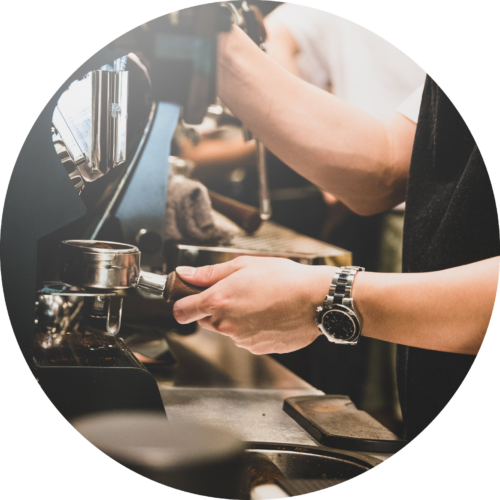
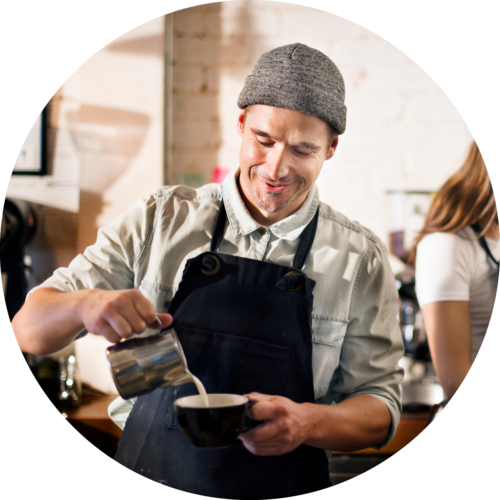
Food hygiene training
If you experience a food hygiene inspection, you will lose marks if you cannot provide evidence that you, or any staff you employ, have undergone food hygiene training. Food hygiene training also increases your awareness of the importance of following safety regulations, as well as your awareness of the potential risks and dangers in your industry.
Safe storage of stock
Even though you will mainly be dealing with beverages, it is still imperative that you store your stock safely. Hot beverages often contain milk and cream, which are high-risk food items. This means they must be stored at the correct temperature at all times. You should also ensure your products are stored separately in airtight containers.
Cleaning requirements
You will likely have a coffee machine, hot water dispensers or a coffee grinder as part of your business. You will need to clean and descale these machines regularly. You should also ensure you keep all surfaces, equipment and utensils clean at all times. Having a cleaning schedule ensures machines are cleaned regularly. Make sure you are using the correct cleaning products for each piece of equipment.
Be aware of contamination risks
Reducing contamination risks and avoiding contamination are essential. As you will likely be working in a small space, the risk of contamination may be higher. Follow cleaning protocols, keep all food and beverage products separate and pay close attention to Best Before and Use-By dates.
Record keeping
You should keep up-to-date records of your business’ cleaning schedule, any risk assessments and any health and safety policies that are followed.
Legal Requirements
As well as health and safety protocols, there are several legal requirements you must adhere to. Failure to follow legal requirements could result in delays opening your business, a fine, forceful closure of your business or, in serious circumstances, a prison sentence. The legal requirements may vary depending on your local council. However, a general guideline of the legal requirements you will have to follow when opening your coffee and tea business is listed below.
Apply for business registration
You need to apply for your food business registration at least 28 days before you begin trading. You can apply for this on the government website, and it is free of charge. If you run a food business without registration, you can be fined or receive a prison sentence of up to 2 years. You need to register your business with the Environmental Health Office of your local authority.
Register as a sole trader with HMRC
Running your coffee and tea business as an individual or as a self-employed person means you will need to register as a sole trader. You will have to think of a name for your business and keep records of all your income, profits and expenses. There is no cost associated with registering as a sole trader.
Check where you can trade
You must only trade in areas that are allowed by law. Contact your local authority if you plan to trade in public areas. You may also have to contact the Highways Department of your local authority if you plan to trade on the roadside. Trading on privately owned land will also require the permission of the landowner.
Obtain a food hygiene certificate
As mentioned earlier, food hygiene training is a legal requirement. A food hygiene certificate is the most efficient way of evidencing your food hygiene training.
Allergen requirements
All food businesses must correctly label their products with information regarding the 14 allergens. If you are providing beverages, customers should be able to view allergen information easily. For more information on food allergens, consult Natasha’s Law.
Implement a Food Safety Management System (FSMS)
Food businesses in the UK must implement a Food Safety Management System. The representative from the EHO will also consider how effective your FSMS is when determining your food hygiene rating. An FSMS is a systematic approach to controlling food safety hazards. It ensures that your business is following safety protocols.
Insurance
There are several types of insurance you may require when running a coffee and tea business. This could include Legal Indemnity Insurance, Product Liability Insurance, Public Liability Insurance, Business Vehicle Insurance and Contents Insurance.

Positives of Owning a Tea and Coffee Business
There are some great advantages to owning a coffee and tea business, such as:
Low start-up costs
Compared to a traditional coffee and tea establishment, a mobile business requires a lower initial investment and low start-up costs. Requiring less initial financial commitment means you will be able to turn a profit much faster.
A year-round product
Unlike other mobile food businesses, tea and coffee is a year-round product. This means you do not need to worry about seasonal sales or being out of business in the winter. The amount of tea and coffee drunk in the UK remains consistently high, so you also do not need to worry about business decreasing year on year.
Coffee is a growing trend
The UK, and England in particular, is known for its love of tea. However, coffee is a growing trend and is consumed nearly as much as tea! Previously, coffee was mainly drunk at home, in the form of instant coffee. Now high-quality, freshly brewed coffee is all the rage. Many people now enjoy artisan coffees and drink different types of coffee, such as cappuccinos, lattes, macchiatos and iced coffees with different syrups and designs. Tapping into this increasingly popular market could be extremely financially rewarding.
Great profit margins
Profit margins for tea and coffee can be as high as 85%. The cost of the ingredients and products can be relatively low. You can also charge higher prices by offering different types of coffee, artisan products and flavoured or herbal teas. This gives you the potential to maximise your profits.
Flexibility
You can choose how little or often you work. You can fit your business around your lifestyle and control your own hours. Some coffee and tea businesses choose to target workers, so will run during traditional Monday-Friday working hours. Others target events or shoppers, so may work evenings or weekends instead. You could choose to operate part-time or full-time.
You can travel around
Choosing your own location is a real advantage. You could target areas with high foot traffic or where large numbers of your target market are likely to be present.
Customer loyalty
If you frequent the same places often, you are likely to receive repeat business. Customers may also recommend your coffee and tea business to friends or colleagues in the area. If you cater for events, you may be invited back or recommended to others, increasing your business.

Negatives of Owning a Tea and Coffee Business
There are some downfalls to owning a coffee and tea business that you should be aware of.
High stress
You will have a large number of responsibilities, including acting as a barista, sales assistant, and driver, as well as being responsible for ordering and replenishing stock and delivering or serving food and beverages. This can be stressful, especially when your business is newly opened.
Competitive
There are some well-known brands in the coffee and tea industry. Coffee shops such as Starbucks, Costa Coffee and Café Nero have thousands of branches across the UK. Not only are you competing with these big businesses, but you are also competing with smaller cafés and tea rooms and other mobile coffee and tea businesses.
Limited sales times
The majority of coffee sales are in the morning. Even tea sales tend to only stretch as far as afternoon tea. This means you may only have a few hours a day to make money.
Time-consuming
Even though you may have limited sales time, a lot of time will be required for sourcing and ordering stock, bookkeeping and perfecting your beverages.
Inconsistent profits
Certain times of year or days of the week will be more profitable. This could mean you are obligated to run your business at certain times. It can also take a while for you to recognise patterns and identify the best times to trade, meaning you make less profit initially. Following the Covid-19 pandemic, we have also seen the huge impact closing businesses and working from home has had on the entire food and catering industry.
Planning Your Tea and Coffee Business
There are many factors to consider when planning your business.
Considerations to take into account and questions to answer could include:
- Where do you plan to trade?
- What do you want your brand identity to be?
- What type of tea and coffee do you want to serve?
- Are you going to serve any other drinks, food or snacks?
- What vehicle do you need for your business?
- What are your equipment requirements?
- Will you buy the equipment new or second-hand?
- Will any equipment be rented?
- What will your price point be?
- Do you have any local competition?
- What will your working hours be?
Now that you have answered these questions, you can begin to plan your business. Planning your business involves several important steps.
Finalise your brand identity
Your brand identity will determine the type of business you run, your equipment requirements, your products and your target market. You should also choose a name that reflects your brand identity.
Plan your vehicle and equipment requirements and source them
Once you have decided on the type of vehicle and equipment you require, you can begin to look at your options. You can calculate costs associated with buying vs. renting and new vs. second-hand.
Calculate your start-up costs and running costs
This can help you calculate how much initial investment you require and whether you can finance this yourself. You can also see how soon you will begin turning a profit.
Develop a business plan
Developing a business plan is an integral step. It will allow you to focus on the specific steps and actions that will help your business succeed. You can also establish costs and potential profits. Take a look at our business plan template to help you effectively plan your coffee and tea business.
Ensure you have the correct paperwork and have followed all legal requirements
This helps you to avoid any fines or delays in opening your mobile coffee and tea business. Consult the list of legal requirements above. Ensure you prepare all your paperwork ahead of time in case you encounter any problems or delays.

